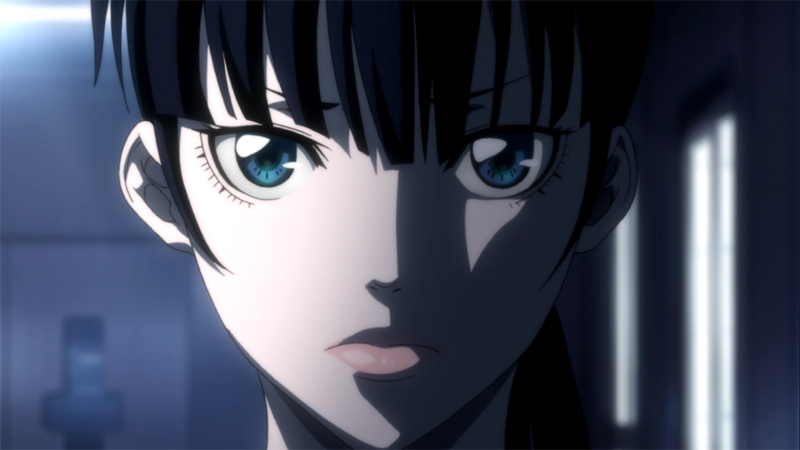Thursday, April 24, 2014
Episode 12 (Yayoi Kunizuka)
Episode 12 gets its own post because it serves as a separate story apart from that which we left in episode 11. However, while many may see it as a sort of "filler" that pads out the season, I've found that it provides a fair amount of information on the pasts of some of our lesser-known characters (specifically Yayoi Kunizuka), as well as a look at the mindset of individual of the public who, like Makishima, oppose the Sibyll System's dominance in society.
A Quick Summary
First, we're presented with the backstory of Yayoi 3 years in the past from the story left in episode 11. An ex-guitarist for a band authorized by Sibyll, we find her incarcerated in the rehab ward for latent criminals. She is then recruited by Kogami (who was still an Inspector at the time) and Ginoza to enlist in the MWPSB as an Enforcer. Playing upon her desire to play music, which, Ginoza comments, is just as capable of being a poison as it is a medicine, they are able to utilize her knowledge of underground music (and antisocial) culture to discover potentially dangerous anti-Sibyll activists. However, Yayoi encounters a girl named Rina, who she previously knew before her rehab, who is found to be a member of these activist organizations as well. Despite her pleas, Yayoi is unable to stop Rina from continuing her actions, and Rina escapes with the rest of her group. Acknowledging her lack of power, Yayoi agrees to become an Enforcer, and joins the CID.
What to Take Away
So why is this episode important? For starters, we get our first actual glimpse at the life of Sasayama. Seen as reckless and predatory, he's depicted as Kogami explained him: short-tempered and quick to make decisions. What's interesting is that we see glimpses of this predatory behavior in Kogami in the present; perhaps these shared lapses into an almost beastlike state are a connection that Kogami both acknowledges and cherishes.
Another important point is the brief insight on the population who resist the Sibyll System's dominance. Rina talks a great deal about the fact that this system clips not only the artistic creativity of society, but (like Makishima points out) it is flawed, and causes serious repercussion on the public as a whole. While their methods may be up there with Makishima's in the destructive category, it is nonetheless a response that the audience (and myself) can't help but agree with to some extent, having experienced the first 11 episodes.
And on a small side note, this episode marks the beginning of one of my top favorite OPs for a show of all time. It's just fantastic.
Subscribe to:
Post Comments (Atom)

No comments:
Post a Comment